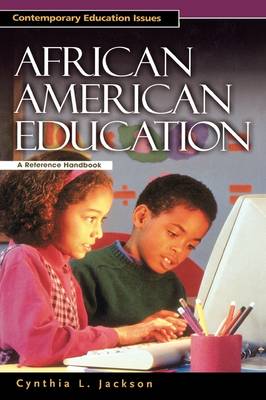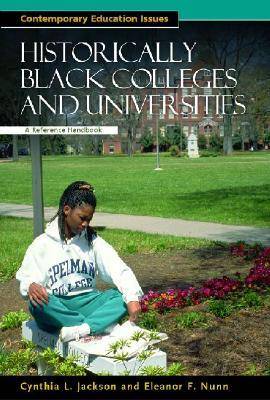Contemporary Education Issues
2 total works
A unique reference work providing information and resources on the main issues concerning the education of African Americans over the past two decades.
From 1954 to the present, from preschool programs like Headstart to historically black colleges and universities, African American Education: A Reference Handbook explores the black educational experience. Statistical analysis and anecdotal evidence, along with interviews with leading black educators, help readers understand the African American perspective on such controversial issues as testing, curriculum choice, institutional approaches, affirmative action, and the effects of desegregation. Readers will also discover how the striking incompatibility between early informal education experiences and later formal education results in a dichotomy that sets African Americans apart from other groups.
- A detailed chronology charting benchmarks in African American education from 1619-2000
- Discussions of relevant constitutional amendments, laws, and court decisions
Historically Black Colleges and Universities
by Cynthia L. Jackson and Eleanor F. Nunn
A highly readable overview of the rich past of historically black colleges and universities, and how their role in higher education is evolving for the future.
Historically black colleges and universities (HBCUs) have influenced African American lives and communities since 1837. Historically Black Colleges and Universities provides a past and present look at their role in higher education.
This volume addresses why these institutions exist, how effective they've been, and if today's 103 HBCUs are still necessary. Special attention is given to the years since 1954 and to desegregation cases such as Brown v. Board of Education, United States v. Fordice, and other judicial decisions. The volume highlights government relations, leadership, and philanthropy as they apply to HBCUs. Also, a chapter provides a case study of the Historically Minority Universities Bioscience and Biotechnology Program Initiative, and a final chapter suggests research agendas for the 21st century.
- Six narrative chapters covering the history, purpose, and legacy of these institutions and how they relate to the government and the international community
- Directory of national organizations, associations, and federal agencies associated with and proponents of historically black colleges and universities

